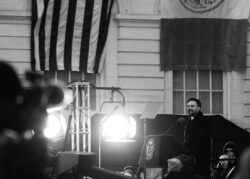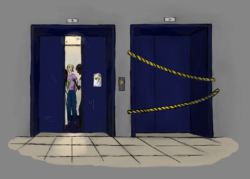One of the clearest memories of my childhood is walking into Fenway Park in the summer of ’97 to see my first baseball game. It was as profound a religious experience as I may ever have: I was mystified by the contrast of the sandy diamond and the perfectly trimmed grass, the enormous green wall in left field, the wooden blue seats, and the sounds of the ballpark. Tim Wakefield will thus always hold a special place in my heart, because the ageless knuckleballer started that game against the Minnesota Twins. It was also the first time I saw rookie shortstop Nomar Garciaparra, the soon-to-be idol of my youth.
As time has passed, I’ve noticed that I keep track of former years based on the Red Sox performance in each of those seasons. 1998 reminds me of watching the Indians eliminate the Sox on my birthday, 1999 evokes the All-Star game at Fenway losing to the Yankees in the ALCS, and 2000 conjures up an image of Trot Nixon recording the final out to ensure elimination from playoff contention. So 2004, the magical year when we finally beat the Yankees and won the World Series, will always be a benchmark in my life. I immediately think of sitting in the kitchen in the bottom of the ninth and declaring that I’d believe in God and be a good Christian, if Mariano River could just screw up this one time.
For the unitiated, it’s hard to imagine how such a peculiar sport became America’s “national pastime”—the defense has possession of the ball, the managers dress up like the players, the foul pole is fair, each field varies tremendously, and there’s no time limit.
There are characters—where else but America is our most celebrated athlete an overweight alcoholic who ate hot dogs and drank soda pop before every competition? There are legends—Dock Ellis pitched a no-hitter on the opening day of the 1970 season while walking eight batters and hitting one … because he was on LSD. Four years later, Ellis attempted to prove a point to teammates by hitting every batter he faced on the Cincinnati Reds. After hitting the first three, walking the cleanup hitter, and aiming two pitches at Johnny Bench’s head, he was removed from the game.
It is precisely because those mythic players and moments are so firmly ingrained in our national consciousness that the recent steroid pandemic is so disheartening. Guys like Canseco, Caminiti, Bonds and A-Rod are not only cheating, but rather digging into the past to slander heroes—it’s a simultaneous vandalization of American history. The havoc they wreak on the game is just as considerable as the destruction of Ebetts Field or the Polo Grounds.
Although the NFL seems to be replacing MLB as the dominant professional sport in the country, and as less and less urban kids choose to pick up a bat over a pigskin, America still needs baseball. Not only does the World Series predate the Super Bowl by sixty-four years, but football’s heroes are not nearly as mythologized as baseball’s. A gentle summer afternoon at the ballpark is significantly more beautiful than tail-gating in a stadium parking lot, because a baseball game’s apparent gentleness and ease remind us of another time. It reminds us of something vaguely American, a sort of collective nostalgia, because we know that sons and fathers have been going to baseball games together for over a hundred years.
And though the World Series TV ratings have dropped this decade, baseball won’t lose its place as our “national pastime.” Our obsession with the past, our youth, and the folklore of figures like Jackie Robinson and Babe Ruth will ensure that baseball won’t be lost to the past, but rather celebrated well into the future.
Heroes and hotdogs: the great American pasttime
October 1, 2009
Read More
Subscribe
Login
0 Comments
Oldest




